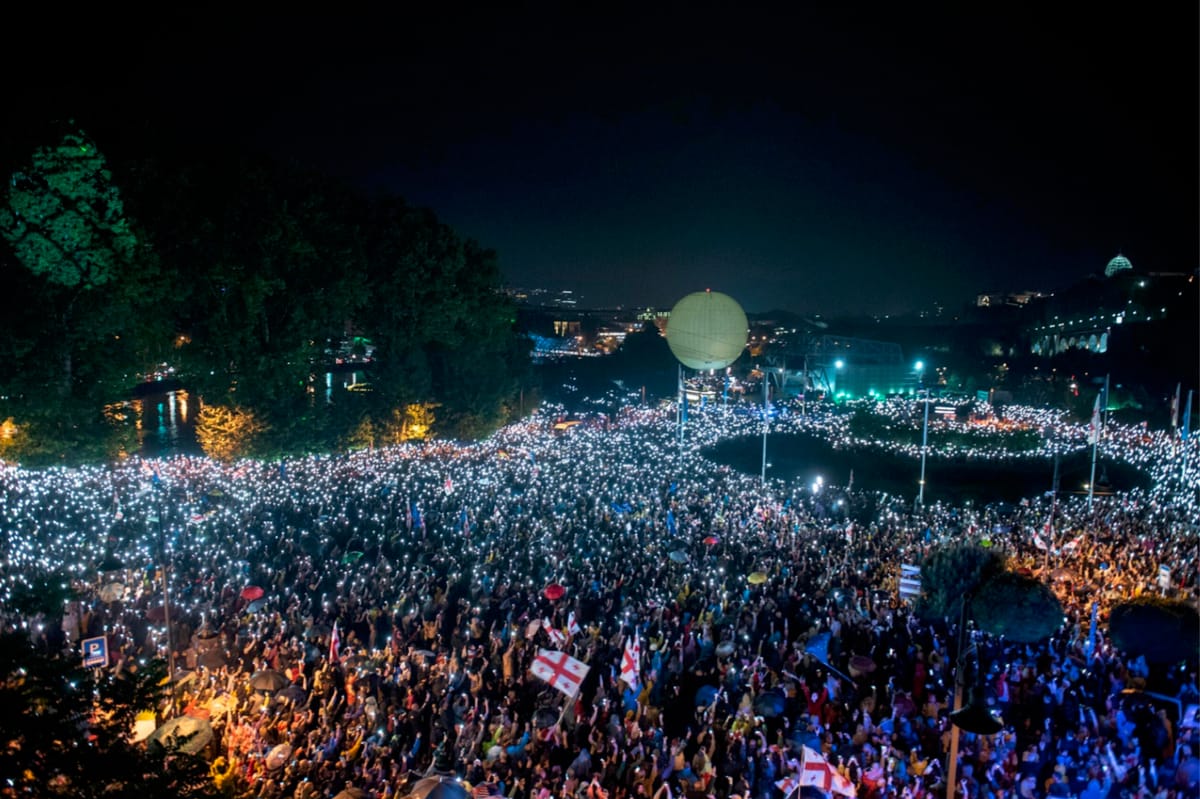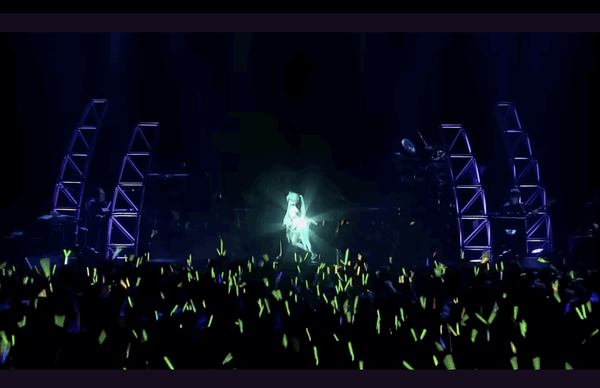Register for free to receive our newsletter, and upgrade if you want to support our work.
The illiberal frenzy has hit Georgia hard. Thus, I thought it would be interesting to sketch out some of the key challenges facing this tiny gem of a country in the South Caucasus — including its creators, selectors, promoters, clubs, venues and electronic music scene (and its entire civil society as such). Essentially: of 2024 in Eastern Europe.
Georgia (Sakartvelo) has been ruled by the oligarch Bidzina Ivanishvili and his “Georgian Dream” (GD) party for the past twelve years — a period which, at its start, offered a tiny bit of optimism for many, replacing the reign of Mikheil Saakashvili’s “United National Movement” that, with its top-down approach and merciless ‘Westernisation’, turned the country into something of a police state.
Readers invested in the region’s electronic music scene certainly have heard about the recent struggles against the draconic Georgian drug-laws, such as “Beqa Is Not A Criminal” (2016) or the “White Noise Movement” (2015), reaching its peak at the so-called “#raveolution” (2018) following the police raid of the country’s (most?) iconic club, Bassiani. Both of these are proof, given they did manage to make legislators change drug policies to the better, that the scene is not only politicised on the surface, but it is willing to and capable of large-scale mobilisation.
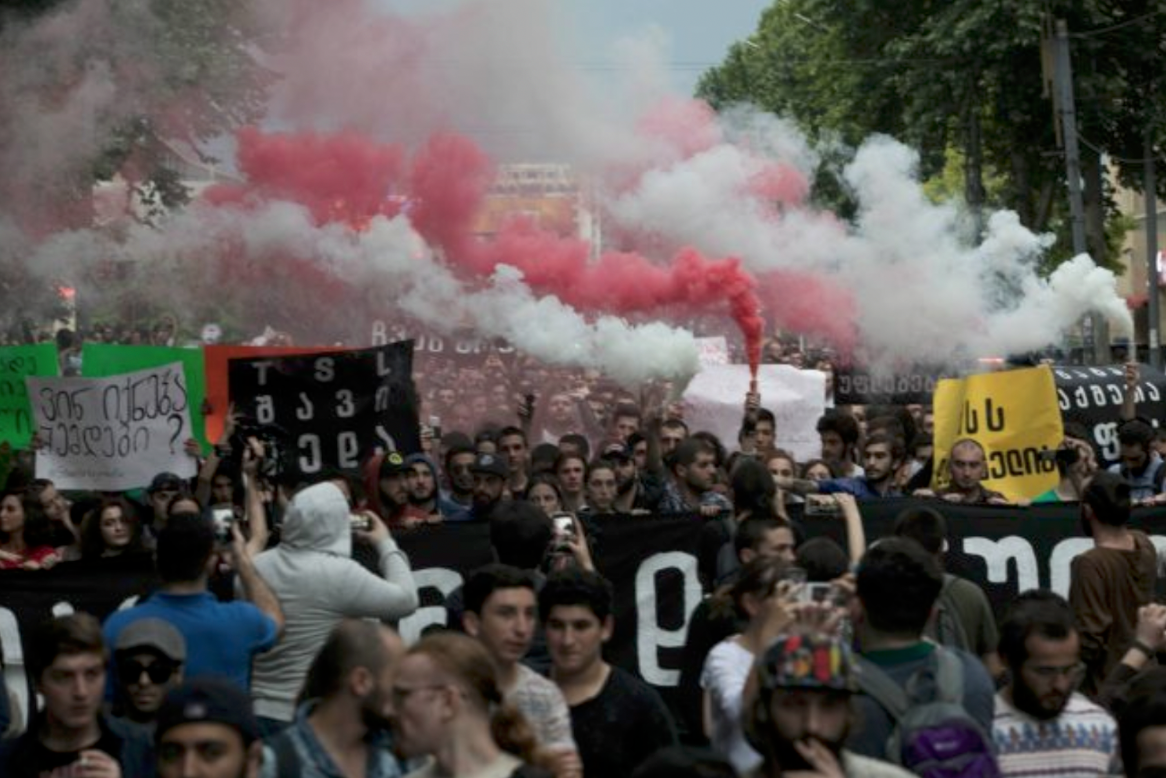
This time, the Georgian government, drunk on the rising tide of the North Atlantic alt-right and advised by the Carpathian basin’s illiberal prince Viktor Orbán and his administration, has gone ever-further.
There are two major legislative maneuvers to talk about, both showing petrifying similarity to those implemented by Putin in Russia. On the one hand, the so-called ‘foreign agent’ or ‘Russian law’ is a bill that will force NGOs who receive more than twenty per cent of their budget from abroad to declare themselves as ‘agents of foreign influence’, which, as it might be obvious at this point, many say is just the beginning of the government’s newest offensive that strives to crack down on the last remaining bastions of civil society.
For the East-Central European reader, it comes as no surprise that NGOs play a significant – if not central – role on the peripheries of Western Europe, which is mostly due to the chronic, systemic, and long-term underfunding of culture at large by the respective countries in the past thirty-some years (culture is always first on the line when austerity needs to be forced down already weak economies). When the state is unwilling and the citizens are unable to support various non-profit cultural endeavours, there is not much left but the multinational network of donors, most of whom are based in the so-called core countries of Western Europe and North America.
The bill was passed by the Georgian Dream majority in May 2024, despite a presidential veto with which Salome Zurabichvili echoed the voice of the masses who have been protesting the legislation for weeks on end, crashing with the unhinged riot police as well as with thugs unleashed by the ruling party – and it gives insurmountable leverages to the authorities.
Given the size and societal impact of the electronic music scene, especially coupled with its aforementioned recent role in addressing burning social issues, it’s obvious that the scene as such and its individual members have been active in the social uprising that followed the announcement of the ‘foreign agent bill’. Some selectors played pop-up sets during night-long sit-ins in front of the parliament building, while virtually all venues firmly and publicly denounced the proposed legislation, assuring the community that they too stand at the daily rallies. Some clubs remained closed altogether in the heat of the events, while others started their events later, to fit the protest schedule.
Since the clubs are also for-profit enterprises, the ‘foreign agent bill’ won’t be as devastating for them as it certainly will endanger the operation of small, incubator-like initiatives that don’t operate in a way that can generate a sustainable income. These are the ones commonly referred to as independent or artist-run institutions, although I much prefer to use a term that acknowledges the realities on the ground, best formulated by feminist ecology: interdependency.
It is exactly these small community-based, interdependent enterprises that rely on funding available solely via international donors (e.g.: NGOs, various government funds, EU frameworks, etc.), for lack of other options. They’re the ones who will have to face all sorts of investigations and defamation campaigns from the authorities – probably even more severe than the foreseen legal processes is the scapegoatism behind any such legislation: the overarching narrative that seeks to frame the most progressive segments of civil society whose work is not only beneficial for the public but often necessary, appearing in places where the population has no chance to access any such services provided by state actors or institutions. Ivanishvili’s rhetoric, echoed by the entire GD-elite, offers no contextualisation as to whose foreign interests are being served by these NGOs. During one of his extremely rare public occurrences, he addressed his ‘supporters’ at a counter-protest organised by the government on the 15th of May in front of the parliament (where, in the days before and the days after riot police cracked down violently on the large crowds standing up against the planned legislation).
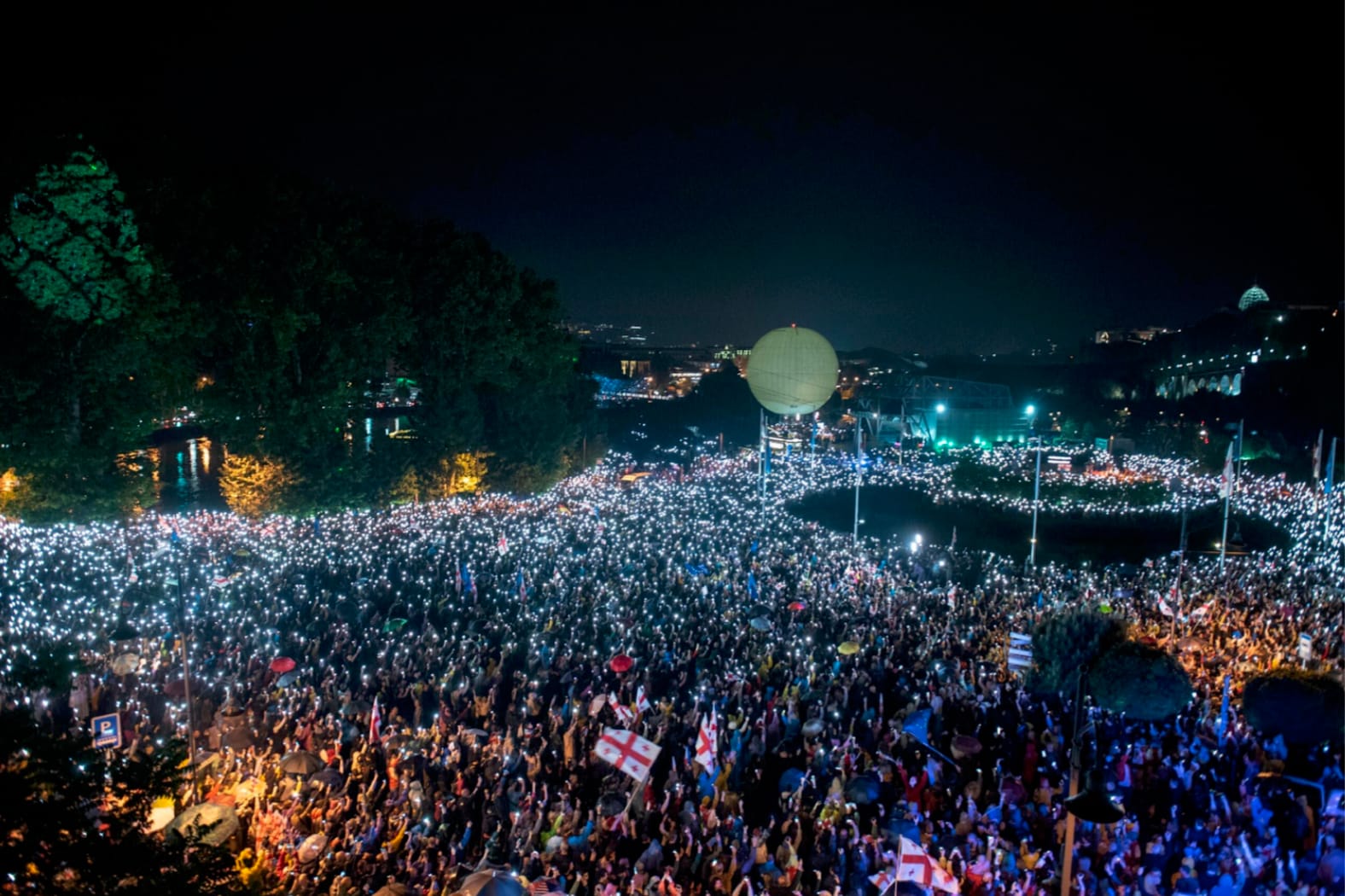
His speech was an incoherent bouquet of conspiracy theories on steroids coupled with a mixture of Trump, Orbán, and Putin references — the quintessence of what’s been labelled as ‘perverse decolonization’.
The second piece of proposed legislation is much more concerning (horrifying, really) for not only the electronic music scene, but the entire LGBTIA++ community countrywide. The fact that this bill is only in the planning stage should not deter us from grappling with its knock-on effects, given the spastic tempo with which the government pushed through the foreign agent legislation. As of now, it seems that this will look a lot like the infamous homophobic bill introduced by Orbán a couple of years ago, in that the “Protection of Family Values and Minors” legislation (a cornucopia of amendments to different laws), as elaborated by the speaker of the Georgian parliament, strives to conceal its grossly homophobic nature and claim that in fact, it will ‘protect’ values intrinsic to Georgian culture. In reality, we can rest assured that these will continue to worsen the already abominable situation in a country where homophobia is not only fueled by the very influential clergy but also by the majority of political parties and influential public figures. Not that I would want to argue that the annual Pride marches are the most important vehicles of much needed societal change, but to illustrate the severity of the situation, I would mention that holding a Pride march is a something of a death-sentence in Tbilisi, and even those very carefully planned undercover events that require registration to ensure the safety of the community fall prey of vicious mobs incited by the holy coalition of church and professional politics.
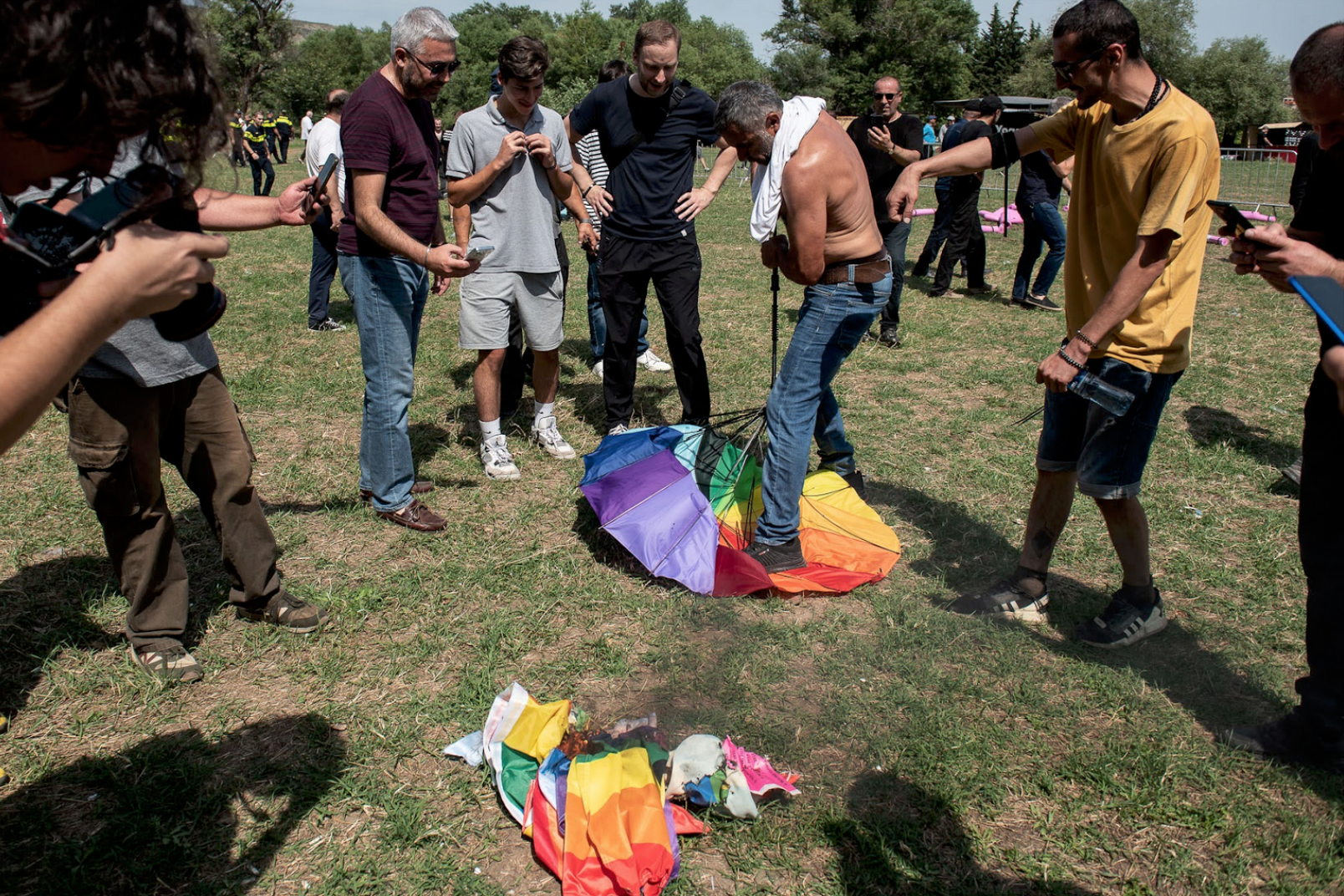
Two years ago, the march was actually planned but the organisers were forced to cancel it the day before due to serious lethal threats. Media workers still showed up on the day of the event, and were met by a mob, which, since no gay parade was happening, eventually attacked the journalists. One camera operator died from his injuries a day later. Last year, no march was planned, but a private party with obligatory registration (a background-check, that is) and strict safety protocols. Even the chief of the police promised the public that this time, they (sic) will protect the event and guarantee the rights of assembly. Yet an even larger mob, led by priests (and their fan club holding religious icons) marched towards the fenced-off territory of the open-air event. The police, despite their prior promise of protection, seemed unwilling to stop this bewildered crowd, even joining forces with them in some instances, resulting in a tasteless jamboree that trashed the location before the actual guests could even arrive. Luckily, the organisers called off the party just in time, and the community rapidly spread the information on social media, so no-one was injured. Given the atrocities of the past years and the ever-tense atmosphere caused by the proposal, it is all but surprising that there will be no events whatsoever during Pride month in Georgia this year.
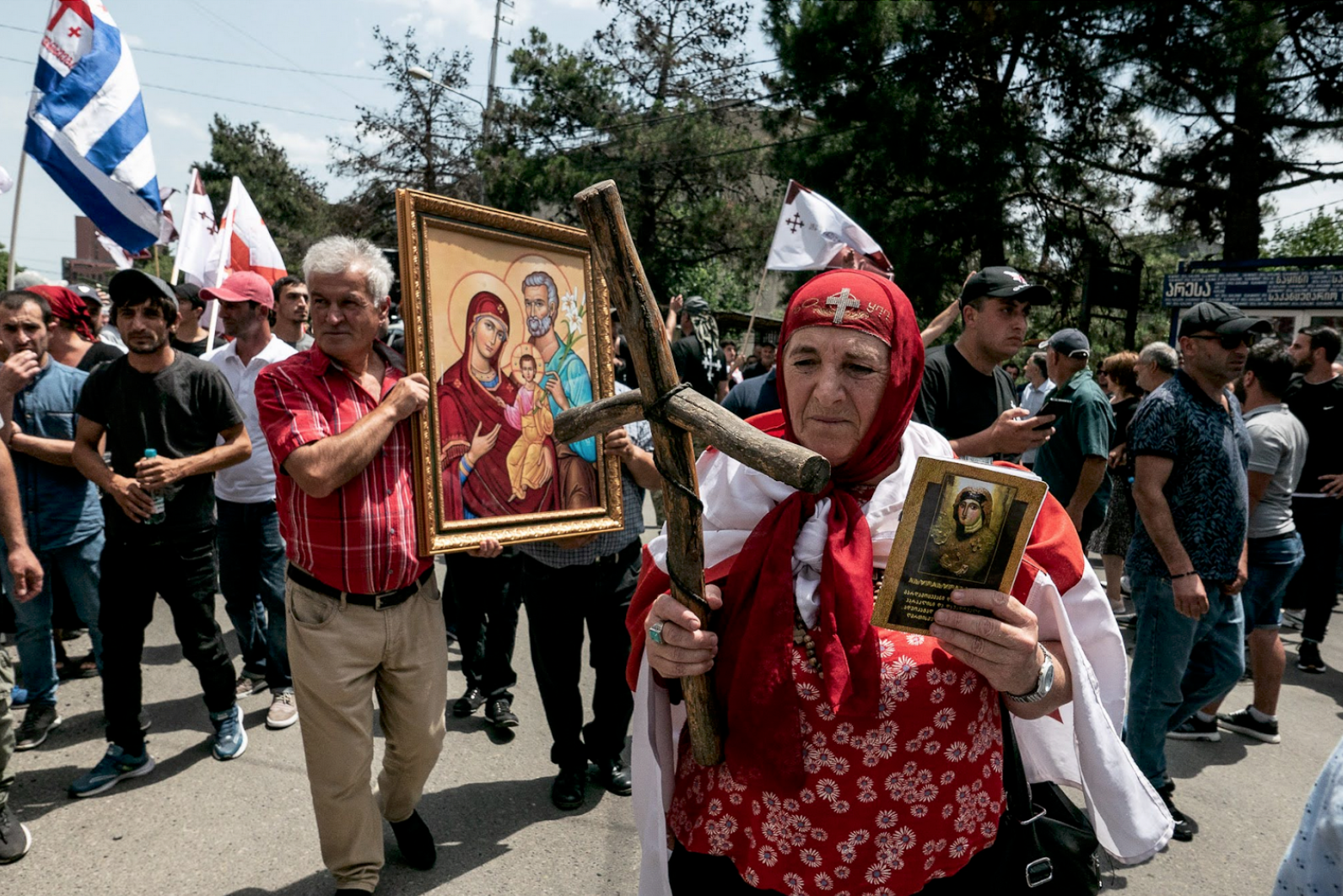
Again, the bill, if passed, will have consequences that reach far beyond the annual week of protest and conviviality. According to the ruling party’s proposal, queer people, even if single, will be banned from adopting children. The law will also prohibit ‘LGBT-propaganda’ in education — the empty signifier catch-phrase used from Floridan public libraries to Hungarian bookstores. It goes even further in banning even the depiction of queer relationships from the entire realm (very vaguely defined) of broadcasting. On top of all that, and this is where the proposed bill seems to be outdoing its regional counterparts, all gatherings and protests will be banned whose purpose is to “promote” any sort of queer issues.
Due to the maliciously induced and disappointingly wide social repugnance against the queer community, the electronic music scene has historically been of pivotal importance when it comes to creating safe spaces, and filling them with events that cater for the non-turbo-hetero groups. I will not assist the government by providing a thorough list of the numerous party series and performance-events, but let me just state that this city is the amazing place it is, largely thanks to the multitude of individuals and collectives (as well as businesses) who have been tirelessly labouring to make these events and places possible, despite the always-already rough conditions of austerity and physical threats.
The glimmer of hope, that I must sparkle at the end of such a text, is that general elections are coming up, so Georgians might be able to get rid of the current regime in October. Not to say that there are amazing alternatives, but surely, this madness must be stopped.
ICKPA (or “spark” in Ukrainian) is a love child of Ukrainian and Georgian promoters, and has been striving to promote the cutting-edge of Eastern Europe’s underground electronic music scenes as such. It has become an amplifier of artistic, activist, and scholarly voices tackling the most burning regional issues, leading the organisers to complement the line-up with a panel discussion section. The primary function of these discussions is to debunk some of the most commonly spread lies and myths in an anti-whitesplaining effort. This year’s Berlin edition, after a splendid radio takeover at Refuge Worldwide, featured two panels and a documentary screening, and was followed by three days of raw joy at RSO Berlin, thanks to selectors, such as Nastya Muravyova, Nina Farrina, Supergloss, Seqta, Nastya Vogan, Nebbieri, or Dali, to name but a few. It was fascinating to put one of the panels together with Dato Laghidze (as PDI Georgia).
This article is brought to you by Easterndate as part of the EM GUIDE project – an initiative dedicated to empowering independent music magazines and strengthen the underground music scene in Europe. Read more about the project at emgui.de.
Funded by the European Union. Views and opinions expressed are, however, those of the author(s) only and do not necessarily reflect those of the European Union (EU) or the European Education and Culture Executive Agency (EACEA). Neither the EU nor EACEA can be held responsible for them.
All photos in this article are licensed under a Creative Commons Attribution-NonCommercial 4.0 International licence by OC Media.


